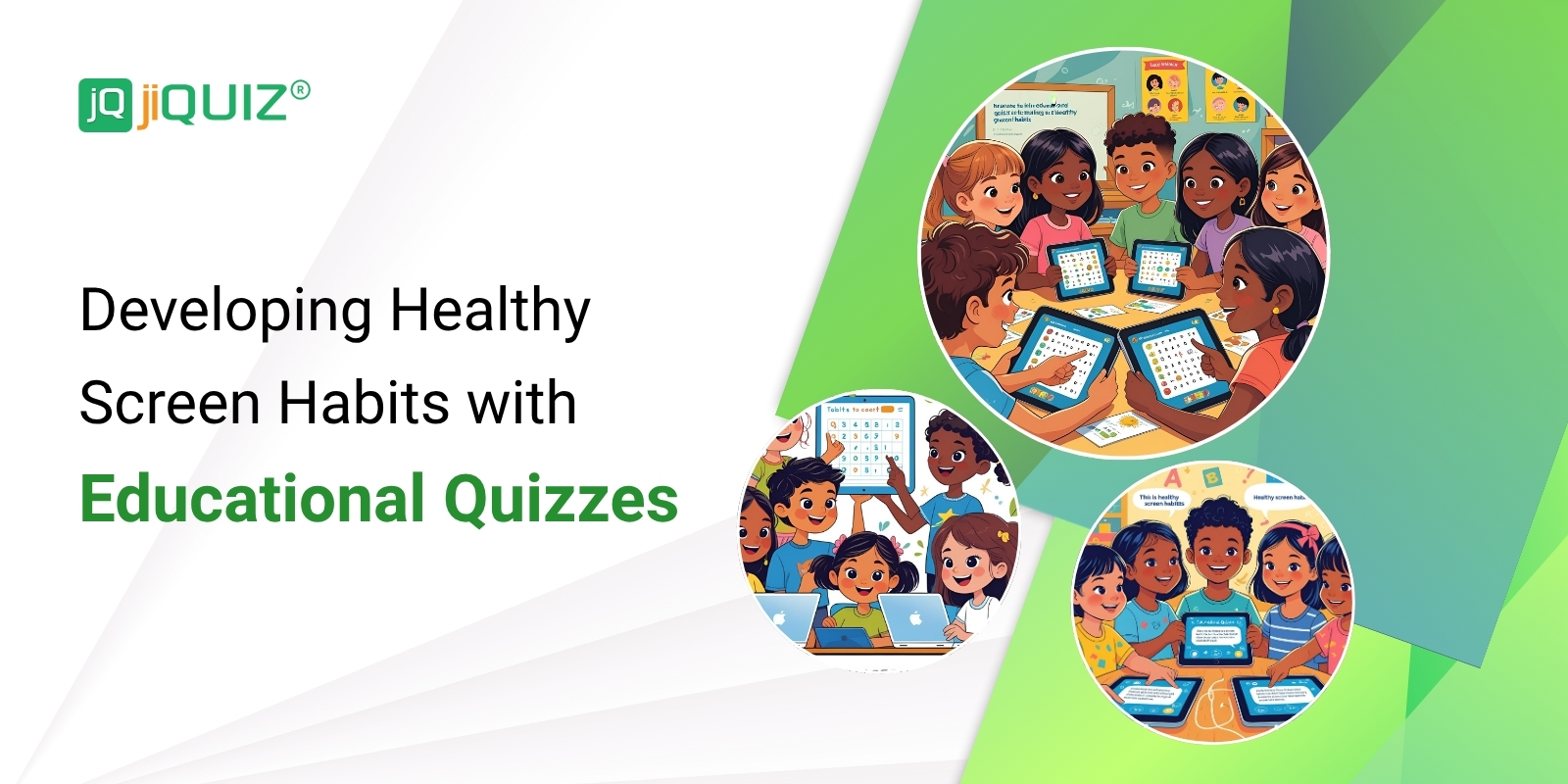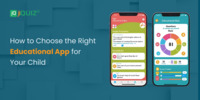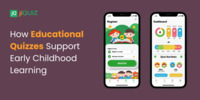- Jul 03, 2025
- Educational
- 425
Share this post on:

In today’s digital age, screens are ubiquitous. From smartphones and tablets to laptops and TVs, they’re woven into the fabric of our lives. While screens offer incredible opportunities for learning, connection, and entertainment, excessive or unhealthy screen habits can take a toll on our mental and physical well-being, especially for children and teens. But it's not about demonizing technology; it’s about fostering a healthy relationship with it. This blog post will explore practical strategies for developing those healthy screen habits and how engaging educational quizzes can be a surprisingly effective tool in the process.
The Problem: Why Are Unhealthy Screen Habits So Prevalent?
Before we dive into solutions, let's understand the challenges. Several factors contribute to unhealthy screen habits:
- Design for Addiction: Many apps and platforms are designed to be addictive, employing techniques like endless scrolling, variable rewards, and push notifications to keep users engaged.
- Social Pressure: Peer pressure and the fear of missing out (FOMO) can drive excessive screen time, especially among young people.
- Convenience & Accessibility: Screens offer instant gratification and entertainment, making them an easy escape from boredom or stress.
- Lack of Awareness: Many people are unaware of the potential negative impacts of excessive screen time on their sleep, focus, and mental health.
- Parental Role Modeling: Children often mirror their parents' behaviors, so if parents have unhealthy screen habits, it’s more likely their children will too.
The Consequences of Unhealthy Screen Habits
The negative consequences are far-reaching:
- Sleep Disruption: Blue light emitted from screens interferes with melatonin production, disrupting sleep patterns.
- Eye Strain & Physical Discomfort: Prolonged screen use can lead to eye strain, headaches, and neck/back pain.
- Reduced Physical Activity: Time spent on screens often replaces time spent being physically active.
- Attention & Concentration Problems: Constant stimulation from screens can shorten attention spans and make it difficult to focus.
- Mental Health Concerns: Excessive screen time has been linked to increased anxiety, depression, and loneliness.
- Social Isolation: While screens can facilitate connection, they can also lead to social isolation if they replace face-to-face interactions.
- Academic Performance: Reduced focus and sleep deprivation can negatively impact academic performance.
Building a Foundation: Setting Boundaries & Establishing Healthy Routines
The first step in developing healthy screen habits is to establish clear boundaries and routines. This requires a multi-faceted approach:
- The Family Media Plan: Create a written plan that outlines screen time limits, device-free zones (e.g., bedrooms, dining table), and appropriate content for each family member. This isn’t about punishment; it's about shared responsibility.
- Dedicated Device-Free Times: Implement designated times when all screens are turned off, such as during meals, before bed, and during family time.
- Bedroom Ban: Keep screens out of bedrooms to promote better sleep. Consider using a traditional alarm clock instead of relying on your phone.
- Lead by Example: Parents should model healthy screen habits themselves. It’s hard to convince your child to put down their phone if you’re constantly glued to yours.
- Open Communication: Talk to your children about the importance of healthy screen habits and the potential risks of excessive screen time.
- Alternative Activities: Encourage and provide opportunities for alternative activities, such as reading, playing sports, spending time outdoors, and pursuing hobbies.
Enter Educational Quizzes: A Surprisingly Effective Tool
Now, let’s explore how educational quizzes can contribute to developing these healthy habits. It's not about using quizzes as a lecturing tool, but as an engaging way to understand the issue.
- Raising Awareness & Self-Assessment: Quizzes can help individuals (especially children and teens) become more aware of their own screen habits. A simple "How Much Time Do You Really Spend on Your Phone?" quiz can be eye-opening.
- Reinforcing Information: Quizzes can reinforce information about the negative impacts of excessive screen time, making it more memorable.
- Promoting Critical Thinking: Well-designed quizzes can encourage critical thinking about online content and responsible digital citizenship.
- Making Learning Fun: Let’s face it: lectures about screen time aren’t always engaging. Quizzes, when designed effectively, can transform learning into a more enjoyable experience.
- Sparking Conversation: Quiz results can be a springboard for conversations about screen time and digital well-being.
Types of Educational Quizzes for Healthy Screen Habits
Here are some specific quiz ideas:
- "My Screen Time Profile" Quiz: This quiz assesses current screen time habits, the types of apps used, and perceived impact on daily life. Results could suggest personalized strategies for improvement. (Multiple Choice, Rating Scales)
- "Digital Detox Challenge" Quiz: This quiz guides users through a simulated digital detox, asking questions about their willingness to disconnect and providing recommendations for realistic goals. (Scenario-Based, "Would You Rather" style)
- "Online Safety IQ" Quiz: This assesses knowledge about online safety topics such as phishing, cyberbullying, and privacy settings. (True/False, Multiple Choice)
- "Fact vs. Fiction: Social Media Edition" Quiz: This challenges users to distinguish between real news and fake news on social media platforms. (Image Recognition, Multiple Choice)
- "Digital Citizenship 101" Quiz: This explores ethical and responsible online behavior. (Scenario-Based, Short Answer - requires manual grading)
- "App Usage Analyzer": A quiz that guides users through a series of questions about their app usage (which apps they use most, why, what feelings they associate with them). Results could suggest apps that might be contributing to unhealthy habits and alternative, more mindful uses of technology. (Rating Scales, Open-Ended Questions)
Designing Effective Educational Quizzes
- Keep it Short & Engaging: Aim for a quiz that takes no more than 10-15 minutes to complete.
- Use Visuals: Incorporate images, videos, and interactive elements to make the quiz more appealing.
- Provide Feedback: Offer personalized feedback based on quiz results, suggesting specific strategies for improvement.
- Make it Age-Appropriate: Tailor the language and content to the target audience.
- Gamify the Experience: Use points, badges, and leaderboards to motivate users.
- Ensure Accuracy: Verify the accuracy of all information presented in the quiz. (See Important Notes Below)
Moving Forward: A Sustainable Approach
Developing healthy screen habits is an ongoing process, not a one-time fix. Here are some final thoughts:
- Regular Reassessment: Periodically revisit the family media plan and make adjustments as needed.
- Open Dialogue: Maintain open communication with children about their screen time habits and concerns.
- Celebrate Successes: Acknowledge and celebrate progress towards healthier screen habits.
- Focus on Balance: Strive for a healthy balance between screen time and other activities.
- Remember the "Why": Keep the reasons for limiting screen time front and center - improved sleep, better focus, stronger relationships, and greater overall well-being.









